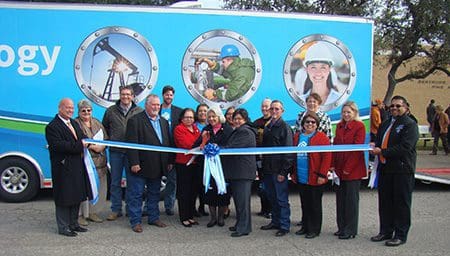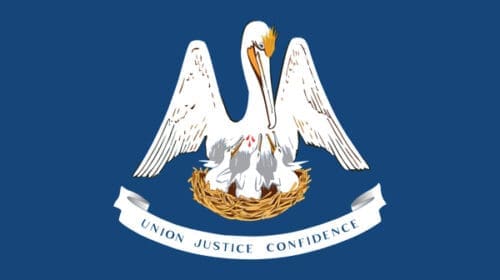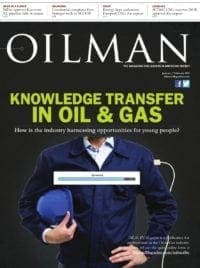Texas A&M University-Kingsville Launches Engineering Initiative
Texas A&M University-Kingsville has launched a plan to bring Javelina Engineering to the Rio Grande Valley.
The Rio Grande Valley Engineering Initiative will expand engineering educational and research programs to the Rio Grande Valley in January. Initial offerings will include bachelor’s programs in chemical, environmental and natural gas engineering. Classes will be held at the A&M-Kingsville Citrus Center in Weslaco.
While a limited amount of courses will be offered in January, the first round of engineering students is expected to be admitted later this year. The initiative will make it possible for engineering students in Rio Grande Valley to earn a Texas A&M-Kingsville degree from the Weslaco campus.
In related news, The Center for Continuing Education at Texas A&M University- Kingsville recently began offering basic courses geared at training employees for entry-level positions in the oil and gas industry.
As the result of an agreement with Navarro Junior College, Texas A&M-Kingsville is teaching these classes through ShaleNET, a program funded through the Trade Adjustment Assistance Community College and Career Training Grant. The first class was for roustabouts.
Texas Senator Celebrates Debut of Oil and Gas Mobile Classroom
Texas State Senator Judith Zaffirini recently joined state, local and Coastal Bend College (CBC) officials in celebrating the debut of the college’s new mobile Process Technology trailer, which will provide hands-on experience for students interested in pursuing careers in the oil and gas industry.
The trailer and equipment will allow CBC to provide top-quality training not only at its campus in Beeville and sites in Alice, Kingsville and Pleasanton, but also at the high schools in 14 rural counties, where the college offers dual-enrollment programs. Participating students will receive instruction in areas including programmable logic controllers, petroleum instrumentation, oil and gas electricity and electrical power instruction.
“I am delighted that this equipment will help expand higher education opportunities in South Texas and the Coastal Bend,” said Senator Zaffirini during the launch celebration. “What’s more, this mobile classroom will allow more high school students to explore careers in the oil and gas industry while gaining valuable hands-on experience and earning college credit.”
The purchase of the trailer and equipment was made possible by a $347,548 grant from the state’s Jobs and Education for Texans grant program. As a member of the Senate Finance Committee, Zaffirini secured $25 million for the program in 2009 and an additional $10 million in 2013.
South Texas Establishes Oil & Gas Law Institute
South Texas College of Law/Houston recently established the region’s first Oil & Gas Law Institute, an initiative to address the growing legal needs in the energy industry through a wide-ranging regimen of courses, projects, symposia, advocacy and scholarship.
Located in downtown Houston, the law school has been educating and preparing practice-ready graduates to serve the energy industry for decades. The institute will build extensively on this experience through expanded educational and training classes, programs and opportunities, and by promoting oil and gas legal scholarship pertaining to industry practice in Texas and beyond.
“With the U.S. in the midst of an historic energy transformation and Houston at the heart of it, South Texas College of Law knew it was the right time to establish the Oil & and Gas Law Institute,” said President and Dean Donald J. Guter in a statement. “Our goal is to be the national leader in oil and gas law education. The needs are great, and we believe there is no better place to have this institute than at South Texas College of Law in downtown Houston.”
The institute will seek to respond to the specific, practical needs of law firms and the energy industry and provide students the education and training they need to make immediate contributions to the oil and gas industry.
The college has selected Christopher Kulander, a visiting associate professor, as the initial director of the Institute. Kulander, who taught oil and gas law for three years at Texas Tech University, is Of Counsel at Haynes and Boone, LLP, is a legal writer, works as an expert witness, and frequently gives presentations and speeches about the oil and gas industry. He also will represent the institute at various oil and gas events in Texas and throughout the nation.
“South Texas has a unique opportunity to be the leading law school for educating and training practice-ready graduates in the oil and gas industry, and that is attractive to potential employers,” Kulander said in a statement. “The workforce needs of the oil and gas industry continue to grow, particularly in the legal arena. South Texas fully understands this fact and is prepared to address those demands through the institute’s diverse classes and programs.”
The Institute will concentrate on developing applied petroleum-related transactional, title and regulatory practice skills. Kulander said one of his main goals is to make the third year in law school much more specialty-focused and practice-responsive. In addition, the institute will seek to place advanced students in the legal departments of oil and gas companies around Houston. Future areas of study will include international petroleum transactions, midstream and downstream oil and gas activities, and other sources of energy.
Additionally, the institute will produce and promote significant scholarships related to the oil and gas legal business, and the institute may partner with other educational institutions and policy institutes to help lead public discourse on topics pertaining to the oil and gas industry and the energy sector overall.
With a planned advisory board comprised of representatives from the energy industry, academia and regulatory and legislative agencies, the institute also will sponsor policy papers and public symposia on specific current issues.













